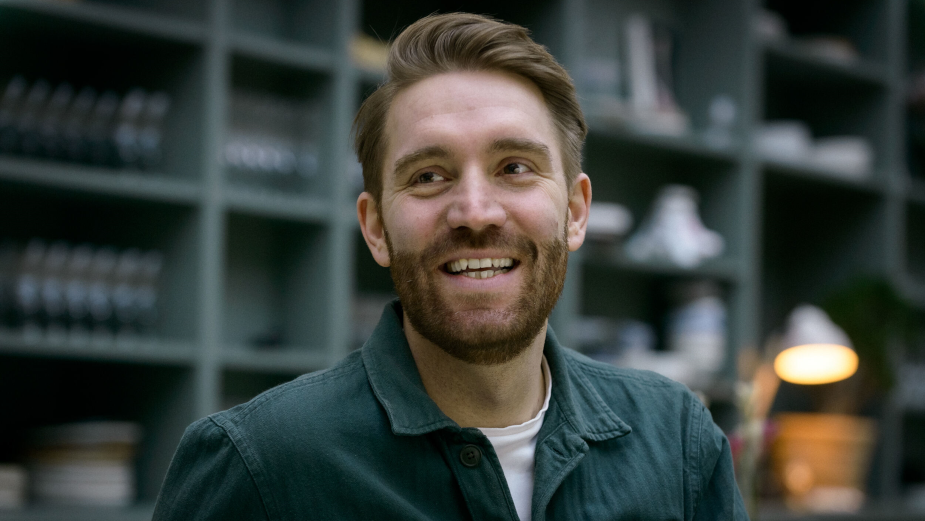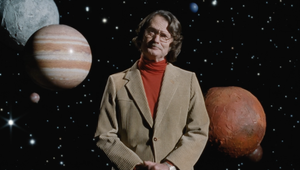
Bossing It: Tom Rickard on the Importance of 'Failing Gloriously'

Goody Bag sits at the unique nexus of culture, creativity and capability and introduce agencies and brands to a curated selection of talented creators within film, photography, animation & creative direction.
As founder of Goody Bag, Tom Rickard spends his days connecting thinkers with makers. As a creative leader, however, he spends his days reflecting on the importance of self-care and the importance of 'failing gloriously’.
LBB> What was your first experience of leadership?
Tom> My first real leadership role was as CEO of a production company. Up until that point I had worked relatively independently, growing the business, and establishing international outposts for the company. It was a big step from ‘lone wolf’ position I previously had in the company but perhaps that’s why I found the position so appealing. I look back at those years as ‘baptism by fire’, something that laid the foundation for who I am as a leader at Goody Bag.
LBB> How did you figure out what kind of leader you wanted to be – or what kind of leader you didn’t want to be?
Tom> It took me a very long time to feel comfortable in my skin and get used to the title of CEO. I never really thought about ‘what kind of leader’ I wanted to be, my focus was simply on how I could best simultaneously serve but the company and the people working within it. I’d worked under many leaders in the past who far too heavily leaned towards one side of the other and my desire was to strike a harmonious balance between the two.
Running my own company, I now see the two are intrinsically linked; taking care of your staff and in my case, the talent I represent, is serving the company.
LBB> What experience or moment gave you your biggest lesson in leadership?
Tom> I would say it was the unfortunate experience of having to let someone go. It was the right decision to make but nevertheless a hard one to make, especially when it was my first time doing so. Through this process I learned the value of honest and clear communication. I remember clearly, I started with excessively flowery language to ‘soften the blow’ which only confused things. Switching then to a very honest and clear approach removed any ambiguity and allowed for constructive dialogue. I put a lot of that down to nerves, something that doesn’t disappear with the title ‘leader’.
LBB> Did you know you always wanted to take on a leadership role? If so how did you work towards it and if not, when did you start realising that you had it in you?
Tom> I became aware it was something I should consider when I noticed people getting behind some of my bigger picture planning. I tend to work towards larger macro goals, and I noticed people around me would often adopt this approach to join the charge.
LBB> When it comes to 'leadership' as a skill, how much do you think is a natural part of personality, how much can be taught and learned?
Tom> There is no one set style of leadership and I believe that anyone with the vision and wish to assume such a position can do so. We too often thing of ‘natural leaders’ as the highly vocal and visionary extroverts yet leadership can come in many forms. An introvert with a goal and a clear understanding of what needs to be done to get there can be as equally if not more effective.
LBB> What are the aspects of leadership that you find most personally challenging? And how do you work through them?
Tom> Self-care is the most challenging aspect for me. In the past I’ve tended to prioritise my duty to the organisation and people within over my own physical detriment which, in the long run, doesn’t serve them at all. Taking the time to pause, reflect, re-energize, and even ask for help are needed for long term, sustainable and effective leadership.
LBB> Have you ever felt like you've failed whilst in charge? How did you address the issue and what did you learn from it?
Tom> Daily! Making wrong decisions happens all the time. You work with the data and instincts you have and the most important thing it to be able to pivot quickly.
A friend of mine, Josh Lenn, coined the phrase ‘Failing Gloriously’ and I find that concept empowering. The idea that if you are going to do something give it your all, accepting the shortcomings and when combined with the ability to pivot quickly, is a wonderful way to live.
LBB> In terms of leadership and openness, what’s your approach there? Do you think it’s important to be transparent as possible in the service of being authentic? Or is there a value in being careful and considered?
Tom> I believe openness serves a purpose, but that doesn’t mean showing all your cards at once. As a leader you often see all the pieces of the puzzle from a top perspective and it’s important that everyone also has a grasp on a larger vision. But that doesn’t mean people need to be overloaded with information and the general goings on of all the pieces. It should serve a purpose. That being said, refusing to engage with or even misleading curious minds within an organisation will never end well.
LBB> As you developed your leadership skills did you have a mentor, if so who were/are they and what have you learned? And on the flip side, do you mentor any aspiring leaders and how do you approach that relationship?
Tom> Alas I never had an official mentor and feel that I would have been highly valuable. Especially someone from outside of my industry to provide fresh perspective and challenge my industry formed way of thinking. As an agency/talent manager now I often help up and coming talent find their place in the industry and impart what knowledge I’ve amassed to help empower them to find their path and assess their decisions.
LBB> It's been a really challenging year - and that's an understatement. How do you cope with the responsibility of leading a team through such difficult waters?
Tom> Addressing uncertainty as a leader is a challenge. How does one calm and reinvigorate the uncertain when you are just as uncertain yourself? At the end of the day, I truly believe it comes back to having your team united around a core vision and strong routines & process. With that in place it makes it much easier to encourage everyone to let go and stick your guns. It allows people to accept the idea we cannot control everything, and we need to stick to doing what we’ve always done and we will get through this.
LBB> This year has seen the industry confronted with its lack of action/progress on diversity and inclusion. As a leader how have you dealt with this?
Tom> I’ve been really inspired by the idea of open-source policies in the industry (e.g., Dark Horse’s open-source Menopause policy) for many reasons. They make it easy for the many to start the journey of formalising an inclusive workplace and also share knowledge within an industry built of competition. At Goody Bag we’re strong supporters of organisations like Free The Work and are building many of routines around the standards they have set. We’re an industry of talkers and the easier it is for people to take action will only benefit us all.
LBB> How important is your company culture to the success of your business? And how have you managed to keep it alive with staff working remotely in 2020?
Tom> It’s vital. Having worked in organisations with poor company culture I see the social and economic importance of a strong and cohesive organisation. Of course 2020 has made things hard but the huge shake up of staff across the industry has also provided great opportunities to welcome new talent look forward to great things to come. Yes there are times when company culture means coming together as a team, but there are also times when company culture means checking in with people as individuals to simply listen and be there. I think there have been some really strong one on one relationships formed over this period which add to the cohesiveness of organisations as a group.
LBB> What are the most useful resources you’ve found to help you along your leadership journey?
Tom> From a practical perspective, a telephone. To simply hear how someone’s day is going or connect via a call is highly underrated. Forget the scheduling and links of video calls, just pick up the phone from time to time to check in and remind people you’re there. From a more metaphorical perspective, humility. Egos are huge obstacles at times so to be able to set them aside and admit your shortcomings is the only way to successful growth as a leader.










